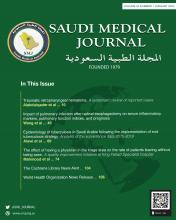War is not just a state of open and declared, hostile armed conflict that effect international relations but also it has a catastrophic effect on the health and well being of nations, that can result in long-term consequences.
Beyond the immediate toll of lives, war has far more lasting effects. A protracted public health emergency arises from the horrific experience of war and the lack of access to quality medical care. People can be physically and psychologically damaged by war for extended periods of time at any stage of life, from infancy and early childhood to maturity, but considering the significance of a child’s formative years, it is likely that children are most severely impacted by war.1
Prior to the current crisis, Gaza’s health system suffered a number of difficulties stemming from a complex siege that lasted for more than 16 years since 2007, that left the country’s health infrastructure and services fragmented, of variable quality, and with a dearth of sub-specialist medical services and technology and the importation of necessary medical equipment and supplies has been made more difficult by the blockade, with only 35 hospitals running at full capacity and 3412 beds overall, that serve a population of over 2 million people. This dreadful situation led thousands of petients with complicated diseases seeking permission from Israeli government to be treated outside of Gaza and not all have this permission.
During this war that started on October, 7th 2023, the Israeli government declared complete siege on Gaza. The health care system has collapsed, many hospitals are destroyed due to airstrikes attacks and bombing. Other hospitals became a target for displaced population seeking safety. In addition, to the shortage of the medical staff that have been killed or injured outside the hospital. The hospitals can provide thier services only to the war casualties. Palestinians health care workers have shown resilience and dedication, despite this disastrous circumstances. Patients with chronic diseases are not given any care at all. There are around 350,000 patients with chronic conditions in Gaza including: cancer, diabetes, chronic renal faliure, heart faliure, in addition, almost 50,000 pregnant women denied the essential health care. The inability to continue renal dialysis, the lack of insulin, and other life-saving cardiac medications, fuel shortages, and lack of electricity will all contribute to an increase in deaths. Almost 95% of people lack access to clean water, and over 85% lives in poverty. Israel declared a complete embargo on Gaza on October 9, depriving all inhabitants of fuel, power, food, and clean water. This is unacceptable and tantamount to the 2.2 million Palestinians who live in Gaza (nearly half of them are children) being punished collectively.
It is believed that approximately 1.8 million Palestinians, or almost 80% of the population, are internally displaced in Gaza. Among these, 156 UNRWA shelters are home to almost 1.1 million internally displaced people. Acute respiratory infections and other infectious diseases have significantly increased in these shelters as a result of overcrowding and unhygienic circumstances. A number of vulnerable groups have come under scrutiny due to their terrible living circumstances. This include individuals with disabilities, expectant mothers, recent mothers, nursing mothers, patients recuperating from medical procedures, and individuals with weakened immune systems.2
To date, more than 20,000 have lost their lives in this war with huge number of injures and disabilities.
According to the UN, Gaza needs at least 400 supply trucks every day, but Israeli officials were only permitting up to 140 vehicles every day. In order to help the Palestinian people in Gaza, King Salman and Crown Prince Mohammed oversaw the creation of the “SAHEM” platform, an initiative run by the King Salman Humanitarian Aid and Relief Center (KSreleif). To date, KSrelief has shipped tons of supplies via El-Arish International Airport in Egypt.3
In addition to these supplies, stopping this war and siezing fire has the proirity in the Saudi government agenda and they are working on protecting Gaza’s population through its infelunce to ensure peace in the region.4
We hope this war comes to an end soon and achieving the goal of rebuilding the infastructure of Gaza to enable the displaced people to return to thier homes.
- Copyright: © Saudi Medical Journal
This is an Open Access journal and articles published are distributed under the terms of the Creative Commons Attribution-NonCommercial License (CC BY-NC). Readers may copy, distribute, and display the work for non-commercial purposes with the proper citation of the original work.






